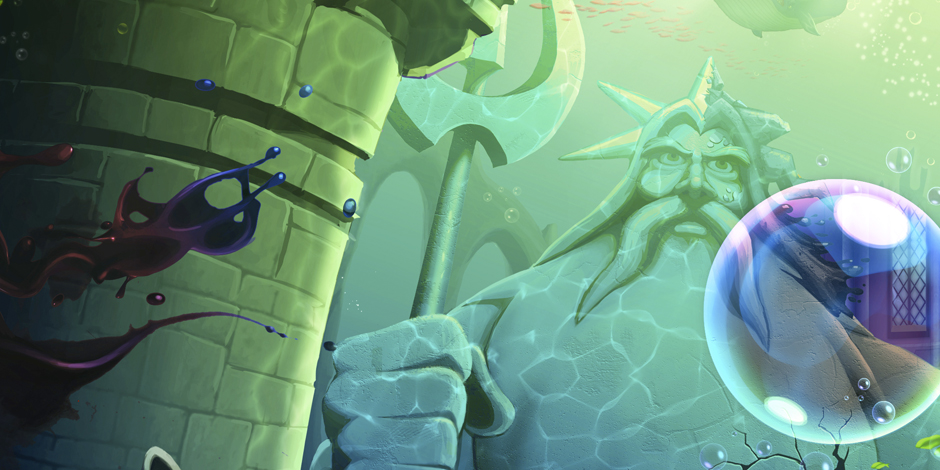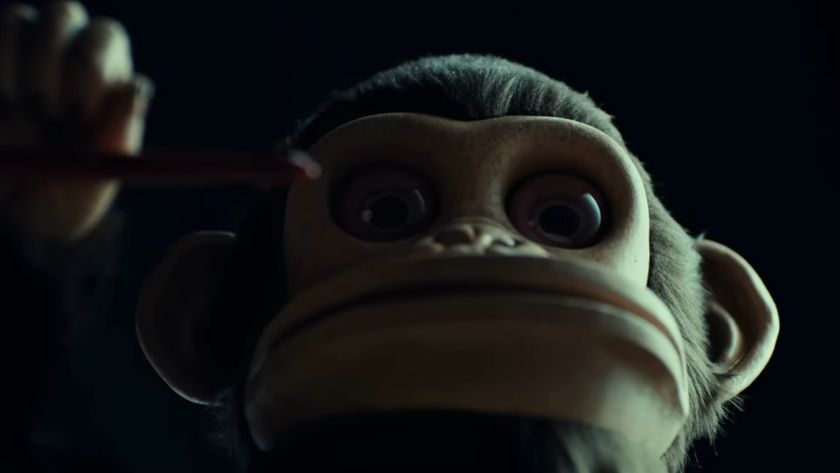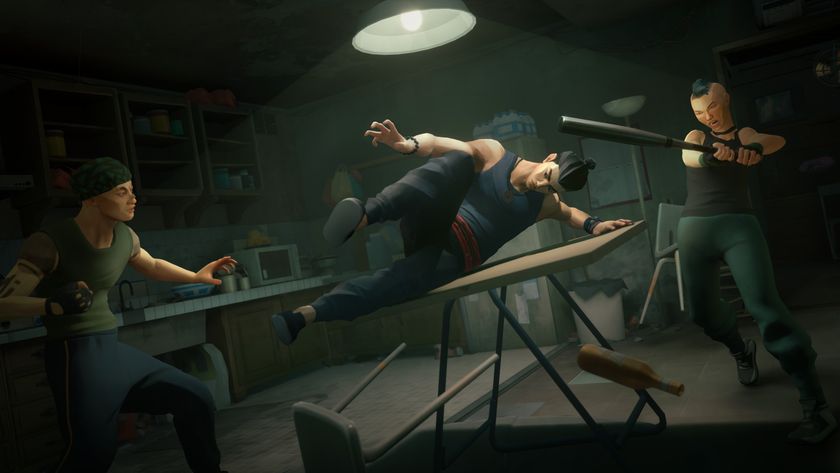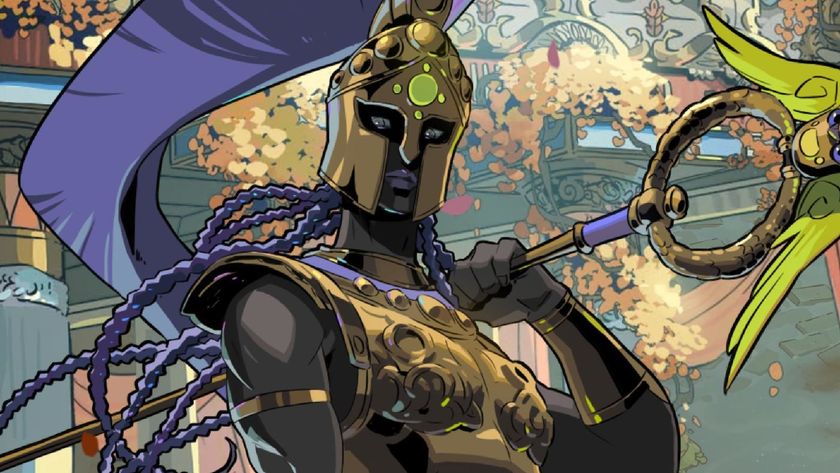12DOVE Verdict
Pros
- +
Attractive 2D visuals
- +
Lots of hidden secrets to find
- +
Entertaining boss fights
Cons
- -
Only three worlds to explore
- -
Paint and thinner are not utilized to their full potential
- -
Doesnt get challenging until the last few stages
Why you can trust 12DOVE
While Epic Mickey 2 settled for mining the same brand of Disney nostalgia that fueled the original Wii title, Epic Mickey: Power of Illusion takes the series in a completely new direction for its 3DS debut. Rather than shrinking Junction Point’s work down for a portable console, developer DreamRift opted instead to channel its love of the Genesis classic Castle of Illusion, crafting an original 2D side-scroller while retaining many of the series’ defining characteristics. The end result is the best Epic Mickey game to date, but a few notable flaws keep it from reaching the same heights as its inspiration.
Like the console titles, Power of Illusion takes players back to the Wasteland, a world where beloved characters and attractions go when they are forgotten. This time, the Castle of Illusion itself appears in the Wasteland, and with it the evil witch Mizrabel. She has kidnapped a host of Disney characters and trapped them within the Castle, plotting to use their life force to return to the Cartoon World and resume her conquest of it. It’s up to Mickey--and Yen Sid’s magical Paintbrush--to rescue these characters and put a stop to the witch’s scheme.
As the story indicates, painting and thinning play an important role in Power of Illusion’s gameplay, but they function a bit differently here than in the console titles. Rather than creating and erasing the world at will and dealing with the ramifications of your decisions, Power of Illusion limits this ability to specific objects, which you trace or rub on the bottom screen. While this initially sounds more restrictive than the original mechanic, in practice it lends the game a nice puzzle quality; you’ll have to create or erase objects to progress through the Castle, and some stages will have you alternating between the two on the fly to clear an area. The boss battles in particular are very satisfying thanks to this ability, making clever use of both the paint and thinner to topple your foes.
See the Epic Mickey franchise in action on the 3DS.
As enjoyable as this create/erase dichotomy is, however, Power of Illusion does far too little to really take advantage of it. Outside of those few examples, most of the paintable objects in the game are entirely optional, and you can clear some stages just fine without so much as spilling a drop of paint. This makes the mechanic feel superfluous in the grander scheme of the design, which is a shame considering the potential it had to influence the Castle’s layout.
Fortunately, the rest of Power of Illusion generally fares much better. The core gameplay is very reminiscent of Castle of Illusion. Mickey moves at a much slower pace than other platforming heroes like Mario, but his speed is well suited to the game’s rhythm. Enemies likewise are very deliberate in their movements, and the stages are big and expansive, favoring exploration over precision jumping. Stages also littered with plenty of secrets to discover, which are all well hidden and rewarding to find.
This last element ties into the game’s other big feature, the Fortress, a safe house to which all of the abducted Disney characters retreat after you’ve rescued them. Here you can take on additional quests, ranging from drawing a certain item to finding a specific toon in one of the game’s stages. It’s fun to see each character’s room morph to better reflect their personality as you complete quests for them, and Mickey is awarded with health and power upgrades for each mission he successfully undertakes, giving you a nice incentive to visit the Fortress often.
The game’s visuals are another one of its highlights, a gorgeous sendup of Castle of Illusion’s 16-bit aesthetics. Mickey’s sprite is detailed and animates fluidly, and the stages, which mimic the look and feel of famous Disney worlds like Peter Pan’s London or the dusty streets of Agrabah, are beautifully drawn and a real sight to behold, particularly in 3D.
Unfortunately, Power of Illusion’s most crippling flaw is its length. The game features a scant eleven stages to complete, which dedicated players will be able to clear in a single afternoon--likely in a single sitting if you play it with your 3DS tethered to a charging cord. Completists will eke a bit more enjoyment out of the title by rescuing all of the abducted characters and upgrading the Fortress, but there is very little incentive to do so once you’ve seen all the main quest has to offer. This is especially a shame considering the difficulty doesn’t start to ramp up until the final world, making an already brief trek feel even shorter.
Still, while Power of Illusion doesn’t quite live up to the Genesis classic it references, it proves to be another solid addition to the 3DS’s library. The main quest is a fun romp through beautiful, Disney-inspired stages, marred only by its short length and a few underutilized gameplay ideas. Anyone with a soft spot in their hearts for 16-bit platformers will definitely be charmed by DreamRift’s offering, which channels the era without pandering to nostalgia. It may not be Mickey’s finest showing, but it’s certainly his best in a long time.
More info
| Genre | Platformer |
| Description | Inspired by the Sega Genesis title Castle of Illusion Starring Mickey Mouse, in Power of Illusion gamers play as Mickey Mouse and using his magical brush to wield paint and thinner to confront the evil witch Mizrabel and save the Toons from disappearing forever. |
| Platform | "3DS" |
| US censor rating | "Everyone" |
| UK censor rating | "" |
| Alternative names | "Epic Mickey 2: Power of Illusion" |
| Release date | 1 January 1970 (US), 1 January 1970 (UK) |
Most Popular







